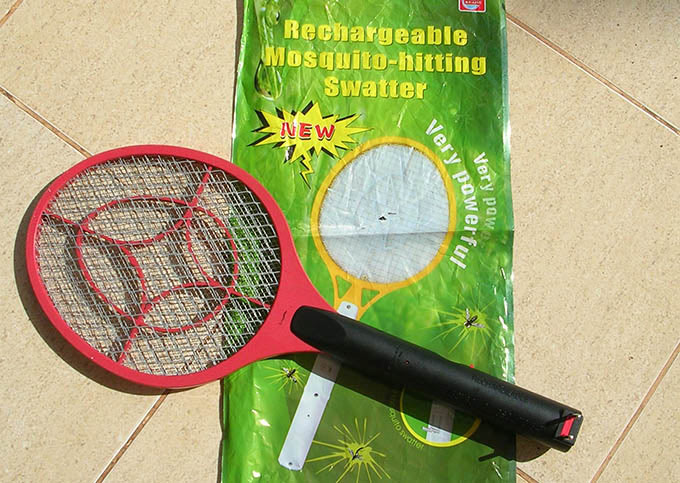
How to avoid Malaria
When I was a VSO volunteer, I was given a whole list of vaccinations (15 injections in total!) and a free supply of anti-Malarials, in the belief it was cheaper to medicate me than to repatriate me! I took the anti-Malarials (Doxycycline) religiously every day for several months…. but then I started to forget.
An expat friend who’s lived in Uganda 12 years advised it might not be a good idea to take anti-Malarials for longer than my two year volunteering stint anyway. When I heard that my British volunteer pharmacist friend Cheryl had stopping taking them too, I stopped taking mine. However, I’m not totally silly. I do take other precautions to try and avoid getting Malaria.
Here are the Muzungu’s travel health tips.

How to avoid Malaria. Uganda travel health advice
Travel health tips to avoid Malaria
- Firstly, start by reading my tropical disease diary – a few lessons in how NOT to treat Malaria, learned the painful way by yours truly, so you don’t have to.
- Sleeping under a mosquito net is the best. I love the sanctuary of my net, I feel safe. When you’re in a cold part of the country or at altitude, you may sleep without a net. Equally if you’re in a hotel with air-conditioned rooms, mosquitoes won’t thrive.
-

Africa’s most dangerous animal, the mosquito
- Mosquito repellent can be very effective. It’s most needed at dusk. I just smother my feet and ankles with it.
- Make sure you know what the signs of Malaria are and go and have a test straightaway if you show symptoms. Symptoms differ from person to person.
- In my case, Malaria symptoms are: a bad headache for several days (that paracetamol wouldn’t shift); my neck and shoulder muscles seize up and set like concrete; I also have lower back pain; one night I had a fever.
- If you’re travelling outside Kampala, it’s a good idea to take anti-Malarials while you’re away. Buy a test kit and a supply of the prophylaxis so you can self-medicate if needs be. Both are cheap and widely available across Uganda.
- If you’re only in Uganda for a short time, take your anti-Malarials (and follow the instructions carefully). Remember Malaria can be fatal.
- In Uganda, when you feel ill, friends will always suggest you go for a test.
- See a doctor!
- If you get sick back home after your trip however, your doctor may not recognise Malaria symptoms.
- It’s quite common to get a negative test result for Malaria even though you have it. I felt very sick on the eve of travelling to Ethiopia. Although I had a negative test, I believed I had Malaria symptoms. I took the prophylaxis anyway, and lo and behold I felt right as rain. However, some would argue that you should not take the medication unless you really need it, i.e. have a positive result.
- I’ve had Malaria twice. I seem to have been lucky and not been as sick as some other people. At the time of writing, a friend of mine is still in bed after seven days of sickness. Last week she had to have a drip and her temperature was 40°. Another friend was hospitalised and had hallucinations. Malaria can kill, remember.
- Don’t mess with Malaria!
FACT: Did you know the indigenous Neem tree has over 135 medicinal uses? It is a natural repellent to mosquitoes, thus a popular tree to grow in a compound. Putting a small branch of it in your house is an effective mozzie repellent.
Have you had Malaria? Do you have any unusual symptoms?
Do you have any other Uganda travel tips or expat travel advice you’d like to share?
Please leave a comment here or check out the Diary of a Muzungu Guest Post page for more information, I’d love to hear from you!


























There is an effective product called Roperfree mosquito repellent pure essential oil, is good for repelling mosquitoes and other insects.
The mosquito repellent is made from herbs and essential oil and deet free whereas could be used for skin diseases and joint pains. So to combat malaria effectively without taking anti malaria tabs this could be the best alternative.
I like deet-free stuff so it could be worth a try. However, for short-term visitors to Uganda, I still recommend everyone takes antimalarial prophylaxis as you don’t want to take any risks. It’s not only that Malaria could spoil your visit to Uganda; if people are ill when they get back home, their local doctor may not recognise the symptoms of Malaria and may not know how to treat it. It’s different when you live here because you can get malaria treatments in every street corner pharmacy. Repellents are great (no-one wants to get bitten by any kind of insect) but you need to be serious in protecting yourself against Malaria.
Malaria is a killer in Africa
Hi Muzungu,
Thanks for the article! I have a few questions:
–To be completely clear, when you said “I took the prophylaxis anyway, and lo and behold I felt right as rain,” you are talking about taking Doxy?
–Have you had any more bouts of malaria?
–My understanding is that it’s more common in rural areas, less common in urban (I assume it’s just because in the city, there are fewer mosquitoes for every human).
In summary, my answers are below:
To be completely clear, when you said “I took the prophylaxis anyway, and lo and behold I felt right as rain,” you are talking about taking Doxy?
No. I went to pharmacy and bought the treatment. Don’t recall which one it was. Coartem is one I’ve taken. Medication is cheap and widely available.
-Have you had any more bouts of malaria?
Yes. Last time I got it in Kibale Forest but you can occasionally get it in Kampala. More likely to get it on safari EG Queen, Murchison, Kidepo parks.
– My understanding is that it’s more common in rural areas, less common in urban (I assume it’s just because in the city, there are fewer mosquitoes for every human).
I’m not sure where it’s most common but your reasoning is incorrect. City dwellers more likely to sleep under nets / seek treatment thus halt spread / have less stagnant water and bushes where mosq breed.
Thank you, that is very helpful!
Hello. I just arrived in Uganda. What are the colder regions. I thrive better in cold weather. I had Malaria in Tanzania and it was unpleasant.
Jinja is cooler than Kampala, as you are between Lake Victoria and the River Nile. Entebbe is also a bit cooler than Kampala, since it is on the lake.
Fort Portal in Western Uganda is a little cooler than Kampala. It’s surrounded by countryside, crater lakes and foothills of the Rwenzori Mountains.
High altitude areas include Kabale and Kisoro in the south-western corner of Uganda, towards Rwanda. Mbale and Kapchorwa (Mt Elgon) are also cooler. Basically, the higher you go, the cooler it is, generally.
Malaria isn’t nice, particularly if it’s your first bout. The secret is to try and tackle it immediately you think you might have it. That reduces the chance of you being very ill.